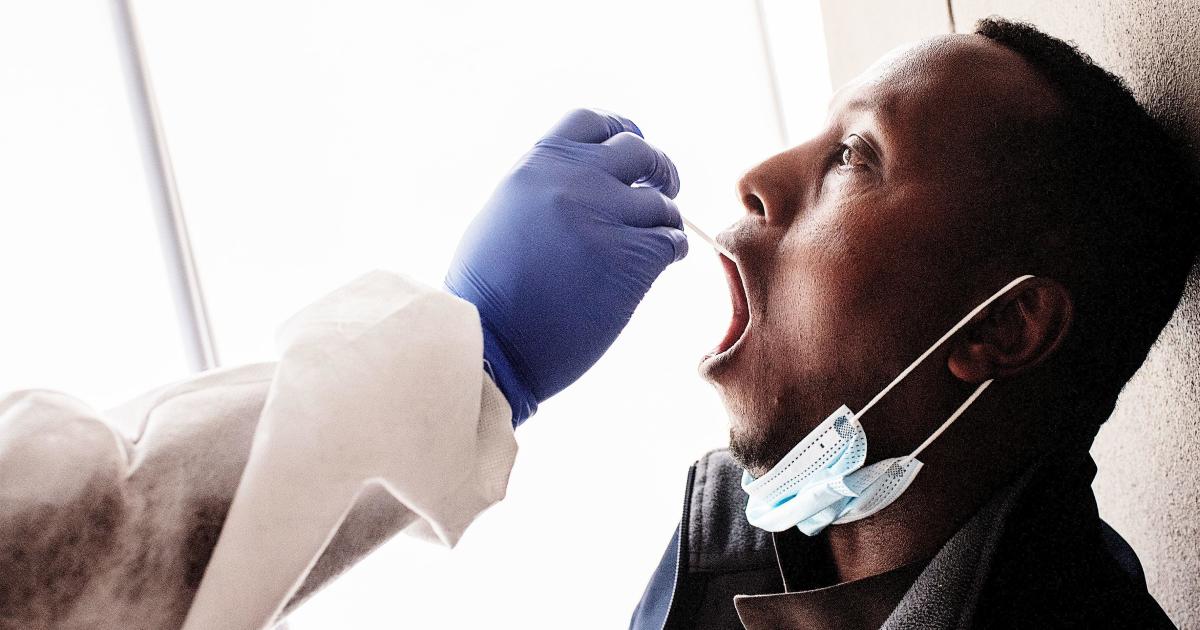
Johannesburg, South Africa – The new coronavirus variant identified in South Africa presents an even greater risk than strain discovered a few weeks ago in England, Warned the highest British health official on Monday. His alarm came when scientists warned that the new strain targeting coastal communities in South Africa could be resistant to COVID-19 approved vaccines or awaiting approval in the US and Europe.
“I am incredibly worried about the South African version,” Health Secretary Matt Hancock told BBC Radio. “This is a very, very significant issue … it’s even more of an issue than the new UK version.”
As were the first doses of Oxford University-AstraZeneca vaccine outside of medical studies administered Monday at an Oxford hospital, senior immunologist at Oxford John Bell – who helped create the university’s prestigious vaccine – said there was a “big question mark” over whether current versions of the vaccines would work on the South African version.
He said it was “unlikely” that the mutation would make the vaccines ineffective, but that it might need to be modified to provide as much protection against the strain as it does from others already widely circulated elsewhere.
Lead researcher at the Oxford vaccine study in South Africa, Professor Shabir Madhi, told CBS News on Monday that more than 13 variants of the coronavirus have been identified in the country since the beginning of the pandemic. He said the new 501.V2, which has spread like wildfire in coastal cities in South Africa, is the most worrying mutation of the virus to date.
“It is not a given that the vaccine will not work on this variant, but it is a consideration that the vaccine may not be fully effective,” he said.
Timely tests
Both Oxford and the American pharmaceutical giant Johnson & Johnson have conducted human studies of their vaccines in South Africa, including the doses administered since the new variant began to spread.
“Those in our study received the second dose during this new variant, which is extremely fortunate,” Madhi said, adding that he expected the relevant results of the study by the fourth week of January.
Glenda Gray, chair of the South African Medical Research Council and leader of the Johnson & Johnson vaccine testing team, confirmed that their study also included dose administration to participants on the background of the new strain.
“We are lucky that this moment will allow us to see if there is any change with this new variant” in the effectiveness of the vaccine, she said. Her team also expects results “by the end of this month”.
“This new option should not delay access to the vaccine, but it also means that we need to watch out for discovered infections,” she said, referring to the rate of infections among those who received the vaccine.
The Johnson and Johnson vaccine requires a single dose, unlike the Oxford and Pfizer vaccines approved for use in the UK, or the Modern formula used in the US with Pfizer photos.
The Oxford vaccine was tested in seven different places in South Africa on 2,100 volunteers, while about 45,000 people were involved in the Johnson and Johnson trial.
To date, immunologists have not expressed concern about the effectiveness of approved or pending vaccines against other coronavirus mutations, including a variant discovered late last year in the London region that led to a sharp rise in infection rates in the UK.
Government scientists say that, like the South African version, the new British strain appears to be more easily transmitted between people, but it is expected to respond to vaccines in the same way as more widespread versions of the disease.
South Africans have been waiting
Meanwhile, South Africans are still waiting to find out when vaccines could become available in their country outside of studies.
The country’s largest union has accused the government of “serious incompetence” in its plan to launch vaccines. A group of eminent scientists, including Glenda Gray, criticized the government in an opinion published on Sunday for what it said was an “amazing” lack of planning.
A few hours after the criticism, the Minister of Health, Dr. Zweli Mkhize, made an online presentation, presenting the government’s plan. He said the goal is to vaccinate two-thirds of South Africa’s 57 million people by the end of February.
“We are targeting a minimum of 67% of the population to gain immunity from the herd,” he said.
The South African Ministry of Health reported a total of 1.1 million cumulative cases of COVID-19 across the country, with a positivity rate of about 32% and nearly 30,000 confirmed deaths. It is the worst national coronavirus epidemic in Africa.